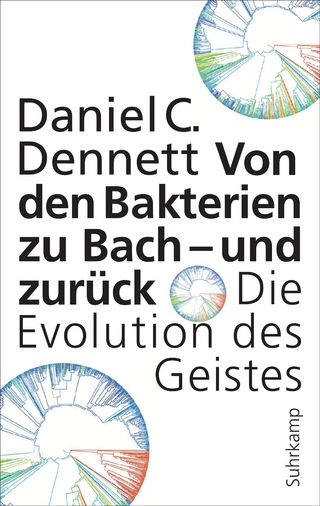
Of Two Minds
State University of New York Press (Verlag)
978-0-7914-3642-4 (ISBN)
This book examines the nature of inquiry-the general method by which we expand our knowledge. It proposes a resolution of the paradox of inquiry, originally formulated in Plato's Meno and most recently the focus of the "logic of discovery" debate in the philosophy of science. The logic of correction developed here directly opposes the claim made by evolutionary epistemologists such as Popper and Campbell that there is no such thing as a "logical method for having new ideas." The author argues that beyond scientific discovery, the same logic can be found in the more intimate form of inquiry we conduct as we attempt to articulate meanings for ourselves. This comprehensive and revolutionary theory challenges traditional epistemology's conception of justification and provides substantial new interpretations of the nature of ampliative inference, representation and meaning, Platonic and Hegelian dialectic, Kantian analysis, the heuristic function of models and metaphors, and the role of inquiry in the constitution of human consciousness.
James Blachowicz is Professor of Philosophy at Loyola University Chicago.
Acknowledgments
Introduction: The Mind's Own Method
PART I: INQUIRY WRIT LARGE
Scientific Discovery
1. Full Circle: The Return to Discovery
Method without Novelty
Novelty without Method
2. The Logic of Correction
Correction vs. Elimination
Correction by Means of Elimination?
Composite Responses and Partial Successes
The Black Box Principle
Toward a Logic of Discovery
3. Generating Explanations from Facts
Initial Hypothesis
Predicted Observations
Contrasted Actual Observations
Proposed Hypothesis
Determination of Explanatory Power
4. Generating Facts from Explanations
Initial Observations
Proposed Hypothesis
Contrasted Explanatory Hypothesis
Predicted Observations
Determination of Factuality
5. Novelty and Method: Remarried
The First Principle of Inquiry
Ampliative Inference
The Regulative Principle of Correction
6. Maps of Discovery
The Second Principle of Inquiry
First-Order Maps
Generation and Confirmation in Maps
Second-Order Maps
Second-Order Justification
The Relativity of Result and the Scope of Inquiry
Quantitative Variation and Intelligent Inquiry
7. Reciprocal Justification: Stability without Foundation s
The Third Priciple of Inquiry
Some Earlier Views
Reflective Equalibrium
Neither Foundations nor Coherence
Reciprocal Justification with Epistemic Privilege
The Revisability of Observation Reports
Reciprocal Justification at Different Cognitive Levels
The Generality of Correction Theory
8. Discovery and the Philosophy of Science I: Enemies of Correction
Partial Success and Evolution
Evolutionary Epistemology I: Karl Popper
Evolutionary Epistemology II: Donald Campbell
9. Discovery and the Philosophy of Science II: Friends of Correction
Abductive Inference: C.S. Peirce and N. R. Hanson
Computer Modeling of Discovery: Herbert Simon
Generative Justification: Thomas Nickles
PART II: REPRESENTATION
Analog Maps and Digital Rules
10. Analog Maps
Mental Imagery and Analog "Representation"
Resemblance
Continuity
Density
Seriality
The Digital and the Sequential
Relational Identity
The Analog beyond Mental Imagery
Conclusion
11. Digital Rules
Analog Maps: Representing as Reproducing
Digital Rules: Representing as Encoding
Representational Incompleteness
Levels of Representation
Qualitative and Quantitative Rules
Half-Levels of Representation
Abstract Models
Conclusions
12. The Calculus of Perception
Representation and Translation
Perception without Background Knowledge
Representation Mistaken for Transduction
Representation and Perceptual Inference
Conlusion
13. Unarticulated Meaning
Meaning, Articulation, and Formulation
Prior Acquaintance
At What Level of Cognition Does Meaning Exist
Meanings of Abstract Concepts
PART III: INQUIRY AND THE MIND
The Articulation of Meaning
14. Saying What We Mean
Initial Expression
Proposed Meaning
Contrasted Actual Meaning
Proposed Expression
Determination of Articulateness
15. Meaning What We Say
Initial Meaning
Proposed Expression
Contrasted Articulate Expression
Proposed Meaning
Determination of Actuality
Second-Order Maps
Metaphor and Inquiry
16. Inquiry and Philosophy I: Plato's Paradox
Platonic Inquiry
"Knowing" and "Not Knowing" in the Theaetetus
"Knowing That" and "Knowing Why"
"Knowing" and "Not Knowing" in the Meno
Levels of "Knowing That" and "Knowing Why"
The Structure if Inquiry in the Platonic Dialogues
17. Inquiry and Philosophy II: Kant and the Perfection of Cognition
The Informativeness of Propositions
Kantian Analysis and the "Improvement" of Form
The Paradox of Analysis
The Fruits of Analysis: Genera
Genera as Rules
Analysis and Synthesis of Mathematical Concepts
Analysis and Reason in the Perfection of Cognition
Conclusion
18. Inquiry and Philosophy III: Hegel's Dialectical Logic
Dialectic and Definition
Dialectic and Ampliative Inference
Dialectic as Correction
The Category-Dependence of the Standard
Contradiction
Dialectic and Scientific Inference
PART IV: OF TWO MINDS
Inquiry and Human Consciousness
19. The Dialogue of the Soul with Itself
Two Models of Inner Speech
A Conservative between Cognitively Different Partners
Talkings to Ourselves: Earlier Views
Self-Consciousness
Other "Dialogues"
Hearing the Inner Voice
Conclusion
20. The Roots of Duality
Feeling and Representation
Epistemology with Feeling
The Duality
Postscript: En Route to Knowledge
Notes
Bibliography
Index
| Verlagsort | Albany, NY |
|---|---|
| Sprache | englisch |
| Gewicht | 599 g |
| Themenwelt | Geisteswissenschaften ► Philosophie ► Erkenntnistheorie / Wissenschaftstheorie |
| Geisteswissenschaften ► Philosophie ► Logik | |
| ISBN-10 | 0-7914-3642-X / 079143642X |
| ISBN-13 | 978-0-7914-3642-4 / 9780791436424 |
| Zustand | Neuware |
| Informationen gemäß Produktsicherheitsverordnung (GPSR) | |
| Haben Sie eine Frage zum Produkt? |
aus dem Bereich
![Was heißt Denken?. Vorlesung Wintersemester 1951/52. [Was bedeutet das alles?] - Martin Heidegger](/media/113619842)

